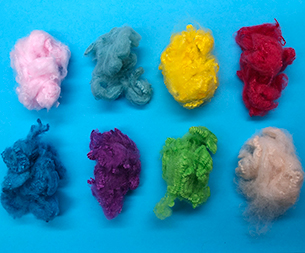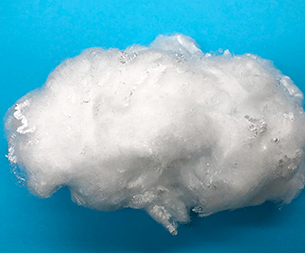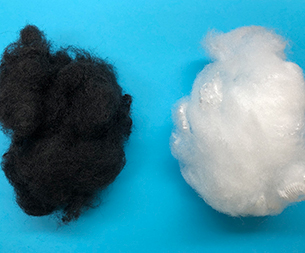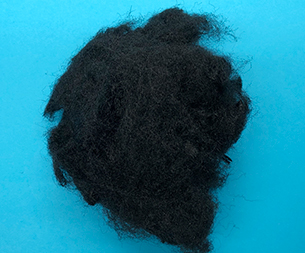Polypropylene fiber is a high-strength bundled monofilament fiber made with polypropylene as the main raw material and produced by a production process. Adding to concrete or mortar can effectively control the micro-cracks caused by concrete (mortar) solid plastic shrinkage, dry shrinkage, temperature change and other factors, prevent and inhibit the formation and development of cracks, greatly improve the crack resistance and impermeability of concrete, and impact resistance And earthquake resistance, it can be widely used in underground engineering waterproofing, industrial and civil construction engineering roofs, walls, floors, pools, basements, etc., as well as roads and roads and Note: The length range is 3-50mm, and can be produced according to customer requirements.
Engineering polypropylene fiber is made of polypropylene through a special process. Commonly used polypropylene engineering fibers can be divided into two forms: monofilament and mesh. Reticulated fiber monofilament fiber Monofilament polypropylene fiber is a kind of high-strength polypropylene bundled monofilament fiber. Special surface treatment technology ensures that the fiber has the best dispersibility in the concrete and the bond strength with the cement body. Generally suitable for fine stone concrete. The appearance of the reticulated polypropylene fiber is that a plurality of fiber monofilaments are interconnected to form a network structure. When polypropylene mesh fibers are put into concrete, in the concrete mixing process, the transverse connection between the fiber monofilaments is destroyed by the rubbing and friction of the concrete itself, forming the fiber monofilament or the net structure to fully expand, thus achieving the quantity The effect of many polypropylene fibers evenly mixed into concrete.
The quality of concrete mixed with polypropylene fiber is improved, and the comprehensive performance is improved. It has the characteristics of simple mixing process, low price and excellent performance.
1. Anti-cracking: Mixing a certain amount of anti-cracking fiber into mortar/concrete will increase the anti-cracking ability by more than double. It can effectively improve the crack resistance of mortar/concrete caused by temperature stress, plastic shrinkage, dry shrinkage, etc. In the case of reasonable mix ratio and construction specifications, the appearance of cracks can be completely prevented
Two impermeability: can effectively improve and improve the anti-seepage and moisture-proof function of mortar/concrete. In general, adding anti-cracking fiber can improve the impermeability of concrete. It is an effective waterproof material.
3. Impact resistance: After infiltrating the anti-cracking fiber, the impact resistance of concrete can be greatly improved.
- Jiangsu Haibang New Material Co.
- China's textile industry is at a
- Key Guide to Selecting Polypropy
- The impact of the Federal Reserv
- The core performance advantages
- China Textile Machinery: Driven
- The core applications of polypro
- Textile foreign trade has shifte
- How to choose the right polyprop
- Cross-border textile merchants a
- Markets
- Automotive Products
- Nonwoven Lining
- Geosynthetics
- Liquid Filtration
- Apparel and Textiles
- Hygiene Products
- Building and Construction
- Other Markets
- Contact Us
- Contact Haibang





